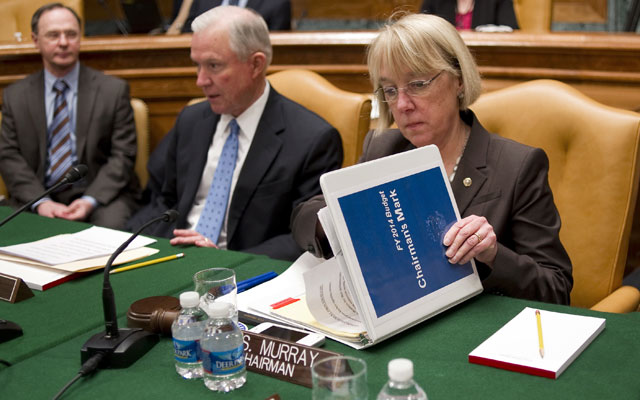It has been nearly four years since the last time the Senate passed a budget. In that time, it hasn’t as much as proposed a budget. That at long last changed yesterday when Senate Budget chairwoman Patty Murray (D–WA) released a budget plan for next year.
Now that the Democrats in control of the Senate have at least proposed a budget, passing it through the senior chamber will be the next challenge. Doing so will be no small order.
It could be difficult because, to no one’s surprise, Murray’s budget includes a massive tax increase. She wants to raise taxes by $1.5 trillion over the next 10 years. She would do so by “closing loopholes.”
Closing loopholes is Washington-speak for eliminating deductions, exemptions, and credits.
Conveniently for Murray and her colleagues on the Budget Committee, she leaves the details of which deductions, exemptions, or credits to eliminate to the Senate Finance Committee.
Members of the Finance Committee are no doubt happy that Murray didn’t intrude on their territory when it comes to setting tax policy. The problem, however, is now they are on the hook for coming up with the messy details of Murray’s gargantuan tax hike.
Finance Committee chairman Max Baucus (D–MT) made clear that Murray’s instructions to his committee would poison the well for tax reform. Lack of support from the powerful chairman of the Finance Committee could make passing the budget more difficult.
Murray is going after “the rich” again, but the tax hikes in Obamacare and the fiscal cliff have already hammered them. In fact, they are now paying record-high taxes.
There is little doubt raising their taxes even further would hurt the economy. Many families are struggling to make ends meet in today’s lackluster economy. Further slowing it down because Washington raised taxes again won’t make their struggle any easier.
Murray is making tax reform less likely and threatening to weaken a stumbling economy. And she is doing both unnecessarily.
The Congressional Budget Office says that revenues will average 19 percent of GDP over the next 10 years. That is above the 18.5 percent of GDP that revenue has averaged in times of economic growth since the end of World War II. We don’t have a revenue problem.
What we do have is a spending problem. Deficits will remain too high over the next decade because spending will remain well above its average.
Rather than focus on this true driver of our deficit and debt problem, Murray chose to largely ignore it and instead ask the American people to pick up the tab for the Senate’s refusal to get serious about cutting spending.






























